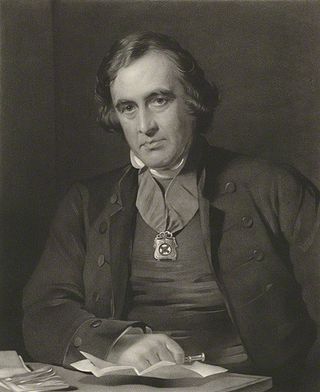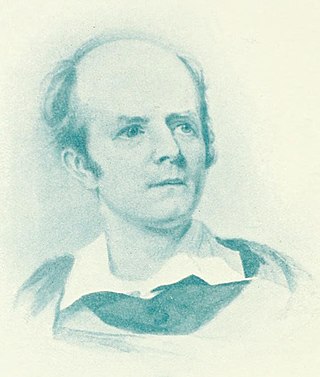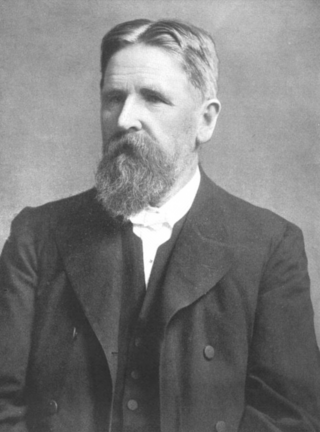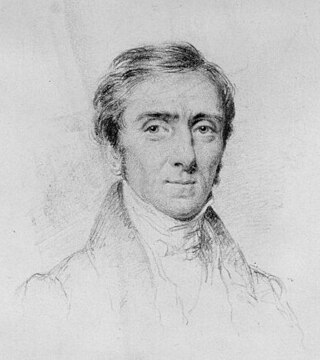
King Alfred is an epic poem by John Fitchett (died 1838) and completed by Robert Roscoe, published in 1841 and 1842. [1] It is currently the longest English poem.

King Alfred is an epic poem by John Fitchett (died 1838) and completed by Robert Roscoe, published in 1841 and 1842. [1] It is currently the longest English poem.
The poem narrates—in dramatic terms—King Alfred's ongoing battles against the Danes. Supernatural powers intervene to aid both sides: the Archangel Michael and his hosts—on behalf of the English—and Lucifer and his hosts—on behalf of the Danes. [2]
The great work of John Fitchett's life was one which occupied his leisure hours for forty years, and in the composition of which he bestowed unwearied industry and acute research. It was printed at Warrington for private circulation at intervals between 1808 and 1834, in five quarto volumes. It was cast in the form of a romantic epic poem, the subject being the life and times of King Alfred, including, in addition to a biography of Alfred, an epitome of the antiquities, topography, religion, and civil and religious condition of the country. He rewrote part of the work, but did not live to finish it. He left money for printing a new edition, and the work of supervising it was undertaken by his pupil, clerk, and friend, Robert Roscoe [q. v.] (son of William Roscoe of Liverpool), who completed the task by adding 2,585 lines, the entire work containing more than 131,000 lines. This prodigious monument was published by Pickering in 1841–2, in six volumes, 8vo, with the title of 'King Alfred, a Poem.'
![]() This article incorporates text from a publication now in the public domain : "Fitchett, John". Dictionary of National Biography . London: Smith, Elder & Co. 1885–1900.
This article incorporates text from a publication now in the public domain : "Fitchett, John". Dictionary of National Biography . London: Smith, Elder & Co. 1885–1900.
Benjamin Thorpe was an English scholar of Anglo-Saxon literature.

Richard Chenevix Trench was an Anglican archbishop and poet.
John Mayne (1759–1836) was a Scottish printer, journalist and poet born in Dumfries. In 1780, his poem The Siller Gun appeared in its original form in Ruddiman's Magazine, published by Walter Ruddiman in Edinburgh. It is a humorous work on an ancient custom in Dumfries of shooting for the "Siller Gun." He also wrote a poem on Hallowe'en in 1780 which influenced Robert Burns's 1785 poem Halloween. Mayne also wrote a version of the ballad Helen of Kirkconnel. His verses were admired by Walter Scott.

Joseph Cottle (1770–1853) was an English publisher and author.
Smith, Elder & Co., alternatively Smith, Elder, and Co. or Smith, Elder and Co. was a British publishing company which was most noted for the works it published in the 19th century. It was purchased by John Murray in the early 1900s, its archive now kept as part of the John Murray Archive at the National Library of Scotland in Edinburgh, Scotland.

William Henry Fitchett was an Australian journalist, minister, newspaper editor, educator and founding president of the Methodist Ladies' College, Melbourne.

Amos Simon Cottle (1766–1800) was an English translator and poet. His publications include, Icelandic poetry or The Edda of Sæmund which was first printed in 1797 with Robert Southey as a co-author.

Samuel Weller Singer (1783–1858) was an English author and scholar on the work of William Shakespeare. He is also now remembered as a pioneer historian of card games.
Joseph Anstice was an English classical scholar, and for four years professor of classical literature in King's College London.
George Frederick Nott (1767–1841) was an English author and a Church of England clergyman.
John Fitchett was an English poet.
Alfred Beesley was an English topographer and poet.
William George was an English churchman and academic, Provost of King's College, Cambridge from 1743 and Dean of Lincoln from 1748.
Thomas Roscoe was an English author and translator.
Benjamin Robert Wheatley was an English bibliographer.

George Barnett Smith was an English author and journalist.
Charles Whittingham (1795–1876) was an English printer, a nephew of Charles Whittingham (1767–1840) who took over the Chiswick Press from his uncle.
Sibella Elizabeth Miles, was an English schoolteacher, poet and writer of the 19th century.
Sir William Rough (c.1772–1838) was an English lawyer, judge and poet.
James Sanderson was an English musician, now remembered as a composer. The tune for "Hail to the Chief", the presidential anthem of the United States, is attributed to him, taken from a Scottish Gaelic melody.